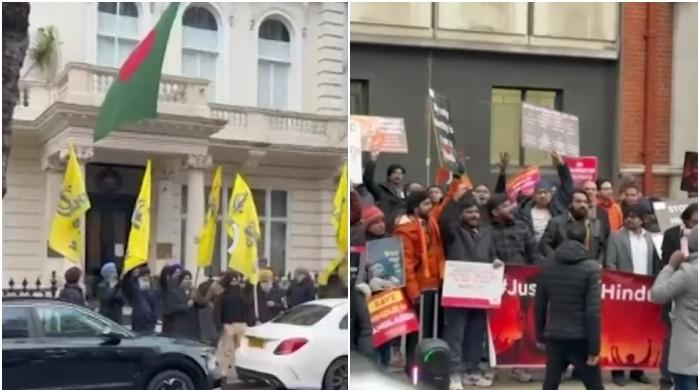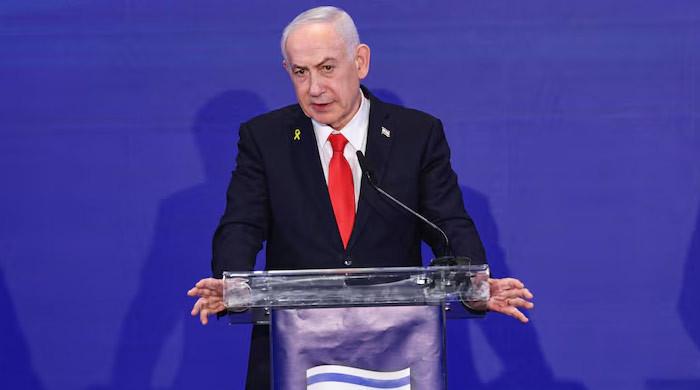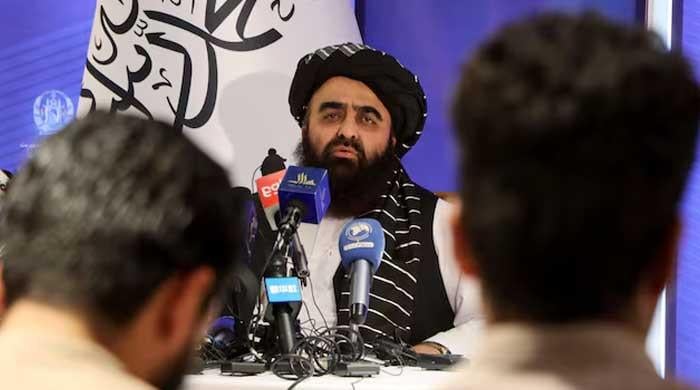Disappeared Bangladeshi lawyer recounts ex-PM Sheikh Hasina's secret jail
Ahmad Bin Quasem was kept in solitary confinement for eight years in Aynaghar
August 15, 2024

DHAKA: Blindfolded, handcuffed and bundled out of his secret prison for the first time in eight years, Bangladeshi barrister Ahmad Bin Quasem held his breath and listened for the sound of a cocked pistol.
Instead, he was tossed from a car and into a muddy ditch on Dhaka's outskirts — alive, at liberty, and with no knowledge of the national upheaval that had prompted his abrupt release.
"That's the first time I got fresh air in eight years," Quasem, 40, told AFP. "I thought they were going to kill me."
Throughout his long incarceration, Quasem was shackled around the clock in windowless solitary confinement.
He had been confined in the Aynaghar, a facility run by army intelligence, given its name because its detainees were never supposed to see any other person besides themselves.
Screaming
Elsewhere in the detention centre, guards blared music throughout the day that drowned out the Islamic call to prayer from nearby mosques.
It prevented Quasem, a devout Muslim, from knowing when he should offer his prayers — and from keeping track of how long had elapsed since his abduction.
When the music was off, he heard the anguished sounds of other detainees.
"Slowly, slowly, I could realise that I am not alone," he said. "I could hear people crying, I could hear people being tortured, I could hear people screaming."
The Human Rights Watch last year said security forces had committed "over 600 enforced disappearances" since Hasina came to power in 2009.
Rumours abounded of a secret black site housing some of that number, but Aynaghar was unknown to the public until the publication abroad of a 2022 whistle-blower report.
Hasina's government consistently maintained afterwards that it did not exist.
It also denied committing enforced disappearances, claiming some of those reported missing had drowned in the Mediterranean while trying to reach Europe.
Before his father's execution
His father, Mir Quasem Ali, a senior member of Bangladesh's party Jamaat-e-Islami, was on trial that year.
Ali was accused of running a paramilitary group that tortured pro-independence Bangladeshis during the country’s 1971 liberation war.
Quasem, called to the bar in London and then aged 32, was running his father's defence. Plainclothes men entered his house one night, snatched him from his family, dragged him down the stairs and threw him in a waiting car.
Quasem's father was hanged four weeks later. He did not know until about three more years had passed, when one of his jailers accidentally let it slip.









